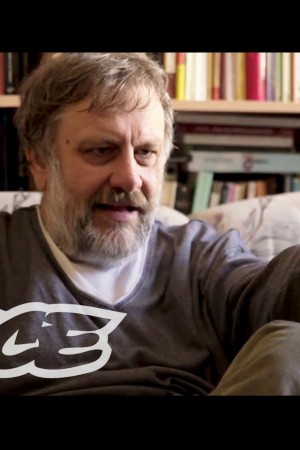
What I aim at is a very precise intervention. I think that my philosophical books are not even so widely read, and they are usually misunderstood. It’s not so much a concept as maybe a topic. What do you think is the most misunderstood concept in your work? Do you think there’s something that we, the readers, don’t want to understand? It’s over 1,000 pages, but immediately after finishing it I was afraid I didn’t catch the basic thought, so I tried to do it in Absolute Recoil. My big trauma was finishing that mega book Less Than Nothing.

Now I’m trying to catch up with that one because I’m always obsessed by the idea that the essential insight skipped me, that I didn’t catch it. I think this is the ultimate statement of my philosophical position up until now. Of philosophical books, I think it’s the one that comes after Less Than Nothing: Absolute Recoil. Like, why are others who are more professional not doing it? (via Verso Books) I think I’m writing them just to say something that I always expect somebody else should have said. My more political writings like The Courage of Hopelessness, Against the Double Blackmail, and so on, these are things that I myself don’t fully trust. First, I think that my philosophical books are much superior. On the other hand, more politically engaged work.

Slavoj Žižek: Although there are a couple of candidates to understand the philosophical background, maybe the first book of my colleague and friend Alenka Zupančič on Lacan and Kant, Ethics of the Real, comes pretty close to the top.īut it depends which type of writing you mean because obviously in the last decade or so I’ve written two types of things: on the one hand, these more philosophical books, usually about Hegel, post-Hegelian thought, Heidegger, the transcendental approach to philosophy, brain sciences, and so on. Mike Bulajewski: What is the best text to read to understand your work? In the wide-ranging style that he has come to be known for, I also learned why he cannot resist a dirty joke, why the task of philosophy is to corrupt the youth, and why the man once dubbed “the most dangerous philosopher in the West” is aiming at something much more modest.


A prolific writer and lecturer, he is best known for his seemingly endless supply of brilliant and provocative insights into contemporary politics and culture.įrom his home in Ljubljana, Žižek was kind enough to answer a few of my questions about how we should best understand his ideas. Slavoj Žižek is a Slovenian philosopher, cultural critic, and Lacanian psychoanalyst.


 0 kommentar(er)
0 kommentar(er)
